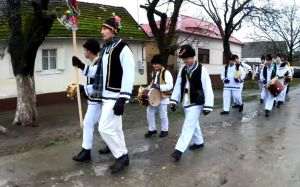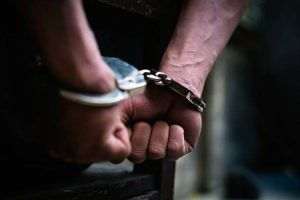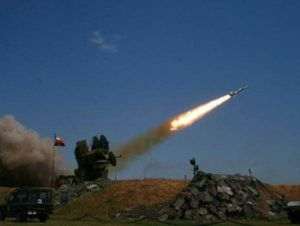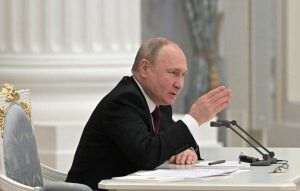Reporter: Where did the idea of initiating a political platform come from? What are the structure, mission and objectives of the ICCD?
Mihai-Răzvan Ungureanu: The goal of the Center Right Initiative is to build a flexible platform for the civil society which expects all citizens whose values and principles about society, economy and political life are close to the European right. The initiative is first and foremost a means of expression for the silent majority of the Romanian electorate which can no longer identify with the currently available political options and which prefers to avoid getting involved in the public life due to their major disappointment in the current politicians.
The immediate objectives of the Initiative are to build a platform of people and ideas which would serve as an alternative political class to the one that already exists and to come up with a new electoral offer, based on projects which have the true interests of citizens at their core.
Reporter: Did you prepare a plan of action to support president Traian Băsescu in the referendum? How about for this autumn's parliamentary elections?
Mihai-Răzvan Ungureanu: This autumn, the ICCD will be part of the electoral platform which will have its own candidates. The distinctive element is that the Initiative will bring to the forefront of politics new, dynamic and especially credible faces, beyond reproach morally and professionally. Until autumn's elections, the ICCD will travel all over the country to meet with its supporters and to determine together with them the common messages and the plan of action.
As for the referendum, I will not hesitate for one moment to denounce this approach whose single purpose is to facilitate the access of politicians to the absolute power in Romania with the grave violation of the democratic norms and nonchalantly violating the true agenda of Romanians, who, after three months of government by Ponta and Antonescu are poorer, more humiliated and more isolated than ever.
This referendum can no longer be just about president Băsescu. This is just about choosing between abuse and the democratic normality, between law and lawlessness, between a European destiny and a destiny of third world country.
Reporter: How would you describe the events of the Romanian politics after you stepped down as prime minister?
Mihai-Răzvan Ungureanu: I would describe them through chaos, political instability, inexcusable loss of credibility of Romania and a barbaric assault on the Romanian institutions. After just three years of being governed by Ponta, Romania's leu has fallen to historic lows against the euro, an increase in the price of gas and energy, and in general, less money in the pockets of every Romanian. Romanians are paying their debts towards the banks at a huge cost, and their degree of indebtedness has reached a historic high. The USL has also succeeded in scaring the few investors we still have left, and the warning sent by investors means a threat for millions of Romanians: lost jobs, unpaid wages, less money to the state budget, the risk of failure to pay the wages of public sector workers and of pensions.
The USL came into power by promising a better life for the Romanians, but the only thing it succeeded in doing was to create a higher political instability, behind which it hides the failures of its government and of its political vision. Healthcare, education, investments, the reformation of state owned companies, the reduction of bureaucracy, the problem of properties, have all been sidelined by the current government. On the other hand, the main preoccupations of the current power are to keep shuffling people, to hide and to cover up impostors and criminals, to eliminate Romania from the list of democratic states and to tabloidize the act of governing.
Reporter: In this context, can Romania still honor its commitments towards its international lenders (macroeconomic indicators and privatization schedule)?
Mihai-Răzvan Ungureanu: It is obvious that there is a major risk of Romania missing the terms agreed upon with the international lenders, but unlike prime-minister Victor Ponta, I have faith that Romania still has in its institutions professionals who will do their job well. But the real problem resides not in the fact that Romania will not honor its commitments, but in the fact that Romania has lost its bargaining chip which it had gained with major efforts. The negotiations with the International Monetary Fund, the World Bank and the European Commission will no longer start off from an equal footing, of partners, but from the position of guilt, of usurpers of trust and of the state of law.
Reporter: Some signals were sent by the leaders and international institutions. Are there any chances of the reactions of the international community influencing the actions of the Bucharest government?
Mihai-Răzvan Ungureanu: Definitely yes, but therein lies the problem. In just a few days, a handful of politicians have caused Romania to be perceived as a country ready to stray away from democracy at any moment. From a responsible, stable and fully European country, all of a sudden Romania has turned itself into Romania's black sheep and has sent the message of being an immature democracy. In a period of economic crisis, when the main hurdle for the economic recovery is trust, Bucharest has just destroyed its chances of a quicker economic recovery, by destroying its most important equity: the trust of its partners on its path to democracy and Europe.
It's no joy that Victor Ponta and Crin Antonescu will finally comply with the very specific requirements of the European Union. The drama lies in the fact that we have come to this point, as the drama lies precisely in the fact that we have arrived at the point where we the whole world is pointing its finger at us, as an example of a country which can drift towards an authoritarian regime.
Reporter: Do you think the scenario of Romania having its right to vote in the European Council suspended if PM Victor Ponta does not honor his commitments made to the Commission is plausible? What other measures can the European Union take against us? Will the current situation reflect on the justice report and the accession to the Schengen space?
Mihai-Răzvan Ungureanu: The European Union was never a construction based on punishment, exclusion, embargo, but I think that after the Hungarian precedent, the EU will be more severe in Romania's case. We already have an MCV which is going to be disastrous (ed. note: the report has been published on Wednesday, and the European Commission has asked for another until the end of the year), Romania's odds of being received in the Schengen space are close to zero, so we can speak of measures intended to sanction Romania. Unfortunately, when Crin Antonescu and Victor Ponta scowl at Europe, Romania becomes more isolated by the minute.
Reporter: Do you see a way to exit this situation? What would be the solutions?
Mihai-Răzvan Ungureanu: The only solution is to grow a political class that would no longer have in its DNA the Soviet-like temptation of absolute political power. Romania can only save itself by giving credit to politicians that would be connected to society and to the true interests of Romanians. We need to reconnect politicians to Romania, and the chances of doing this are represented by this autumn's elections.
Reporter: Thank you!
"Healthcare, education, investments, the reformation of state owned companies, the reduction of bureaucracy, the problem of properties, have all been sidelined by the current government."
•
"Romania has lost its bargaining chip which it had gained with major efforts"
•
"Unfortunately, when Crin Antonescu and Victor Ponta scowl at Europe, Romania becomes more isolated by the minute."
•
• The Foreign Intelligence Service: providing information or keeping us in the dark?
The current head of the Romanian Foreign Intelligence Service (SIE), Mr. Teodor Meleşcanu, recently had a meeting with a few journalists, some of whom included Emil Hurezeanu and Ion Cristoiu, sources close to the situation said.
The discussions have focused on the recent events on the political stage and the way they were reflected abroad.
The same sources have said that Teodor Meleşcanu denied before the journalists any involvement of the SIE in the propagation abroad of the information from the domestic market.
Contacted by us to check the information, our interlocutor from the SIE initially said that he did not know of such a meeting taking place, that he would check and we would be contacted within the briefest delays so they can provide us with the requested answers.
After approximately 20 minutes, we received a call from a lady, who introduced herself as working with the SIE (SIE employees do not disclose their identities) and she said that no meeting between Teodor Meleşcanu and the press took place, and that, if we are accredited, it is impossible for us not to receive press releases and invitations from the SIE.
We have said that we have two people accredited with the SIE.
At the end of the day, SIE has asked us to address them an "official" request (in writing), as if the phone conversation had been private.
We have carried out the formality, but we will probably receive a reply within the legal delays.
In other words, after the Referendum... (L.D.)


















































